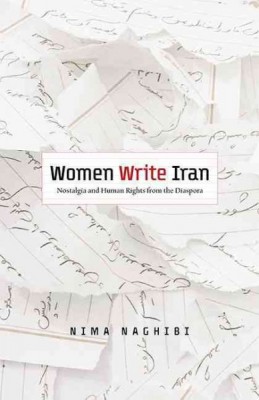| Women Write Iran: Nostalgia and Human Rights from the Diaspora Contributor(s): Naghibi, Nima (Author) |
|
 |
ISBN: 0816683840 ISBN-13: 9780816683840 Publisher: University of Minnesota Press OUR PRICE: $27.72 Product Type: Paperback - Other Formats Published: May 2016 |
| Additional Information |
| BISAC Categories: - Literary Criticism | American - General - Literary Criticism | Middle Eastern - Literary Criticism | Women Authors |
| Dewey: 818.603 |
| LCCN: 2015019413 |
| Physical Information: 0.7" H x 5.4" W x 8.4" (0.60 lbs) 224 pages |
| Themes: - Cultural Region - Middle East - Sex & Gender - Feminine |
| Descriptions, Reviews, Etc. |
| Publisher Description: Women Write Iran is the first full-length study on life narratives by Iranian women in the diaspora. Nima Naghibi investigates auto/biographical narratives across genres--including memoirs, documentary films, prison testimonials, and graphic novels--and finds that they are tied together by the experience of the 1979 Iranian revolution as a traumatic event and by a powerful nostalgia for an idealized past. Naghibi is particularly interested in writing as both an expression of memory and an assertion of human rights. She discovers that writing life narratives contributes to the larger enterprise of righting historical injustices. By drawing on the empathy of the reader/spectator/witness, Naghibi contends, life narratives offer the possibilities of connecting to others and responding with an increased commitment to social justice. The book opens with an examination of how the widely circulated video footage of the death of Neda Agha-Soltan on the streets of Tehran in June 2009 triggered the articulation of life narratives by diasporic Iranians. It concludes with a discussion of the prominent place of the 1979 revolution in these narratives. Throughout, the focus is on works that have become popular in the West, such as Marjane Satrapi's best-selling graphic novel Persepolis. Naghibi addresses the significant questions raised by these works: How do we engage with human rights and social justice as readers in the West? How do these narratives draw our attention and elicit our empathic reactions? And what is our responsibility as witnesses to trauma, atrocity, and human suffering? |